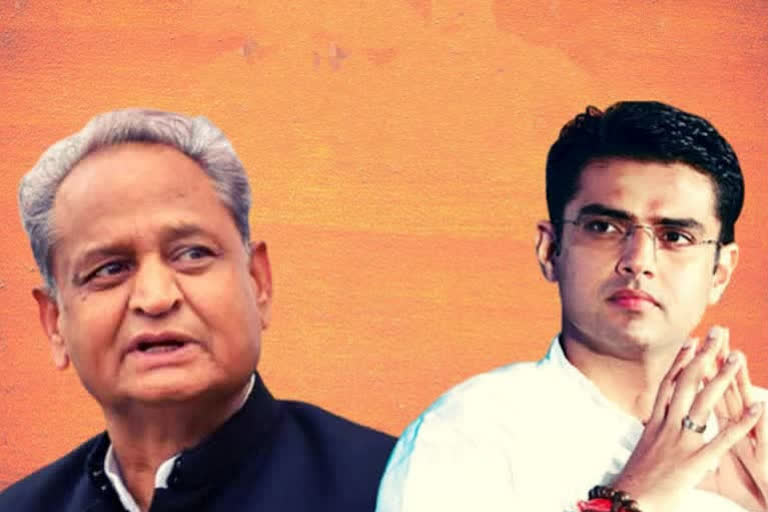Jaipur: The Rajasthan BJP on Monday launched a scathing attack on the Ashok Gehlot government after it accepted phone tapping during the political crisis of July last year. It accused Chief Minister Ashok Gehlot of "crossing all limits and bypassing laws" just to "save his chair".
Eight months after leaked phone conversations between a Union minister and Congress leaders in Rajasthan triggered a political crisis in the state, Gehlot's government recently confirmed that phones were indeed "intercepted."
The confirmation was posted on the website of the Rajasthan Assembly in reply to a question asked during the House session of August 2020.
BJP MLA Kalicharan Saraf in his question asked: "Is it true that phone tapping cases were done in the last days? If yes, under which law and on whose orders? Place details on the table of the House."
In the reply, furnished after a delay of many months, the government said, "In the interest of public safety or public order, and to prevent the occurrence of a crime which might risk public safety or public order, telephones are intercepted after an approval by a competent officer under the provisions of section 5(2) of The Indian Telegraph Act, 1885, and section 419 (A) of The Indian Telegraph (Amendment) Rules, 2007, as well as section 69 of the Information Technology Act, 2000."
Also Read:Cong announces new executive for Rajasthan PCC; Pilot loyalists accommodated
"Telephone interception has been done by the Rajasthan Police under the above provision only after obtaining permission from the competent officer."
"As per the provision described in Rule 419(A) and Section 69 of the Information Technology Act 2000, the approval of the competent authority is granted," it said.
Cases taken on antitrust are reviewed as per rules under the chairmanship of the Chief Secretary, Government of Rajasthan. All the cases up to the month of November 2020 have been reviewed, the answer informed.
However, details regarding the telephone numbers that were intercepted, and the time for which they were put under surveillance have not been shared and the answer remains limited in its approach.
